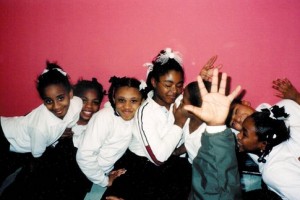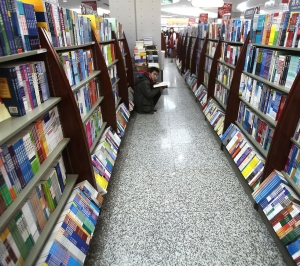 This week on Luna Park, Michael Copperman writes what seems to me an original and thoughtful essay considering some aesthetic and political assumptions made about race in contemporary publishing. Possibly one of the most inspiring pieces we have published on LP, Copperman’s essay moves quickly from describing publishing obstacles onto the important reasons we read and write stories: “recognizing human suffering and responsibility, and so examining what is true in us and about us.” Here’s from the beginning of the piece:
This week on Luna Park, Michael Copperman writes what seems to me an original and thoughtful essay considering some aesthetic and political assumptions made about race in contemporary publishing. Possibly one of the most inspiring pieces we have published on LP, Copperman’s essay moves quickly from describing publishing obstacles onto the important reasons we read and write stories: “recognizing human suffering and responsibility, and so examining what is true in us and about us.” Here’s from the beginning of the piece:
The email from the editor of the literary journal started out promisingly enough, noting that they liked my story very much. I knew that couldn’t be all, for the story I’d submitted was a dialect piece, and I knew from long experience that no editor would accept a story deploying a form of African American Vernacular English (AAVE) without some confirmation of authenticity: they would try to verify my racial background and personal history, especially in the absence of publications I didn’t possess because no editor would accept a story written in AAVE without…guarantees. And there it was:
Our editors have concerns about how you colonize this young girl’s voice.
I took a deep breath, wishing polemic came easier to me, and started to type…
In non lit mag news: Copperman also has a similarly-themed brief essay in the latest GOOD magazine on education against the odds in an area of rural Mississippi just half-a-day’s drive from where Luna Park was once based. The sensitivity with which Copperman describes the schoolchildren will no doubt speak to the heart of any teacher or parent.
Copperman’s essay in LP is a part of our ongoing series on race, class, gender, and sexuality—a series in which Claire Messud’s recent all-woman fiction section on Guernica would have fit right in. Messud guest-edited this section for the magazine “in response to why “women authors [are] so frequently left off the best-of lists, and left out of prestigious book prizes.” The result is a host of female fiction from around the globe:
These seven remarkable women form no cohesive group. They write from different perspectives and record vastly different worlds: Chimamanda Adichie’s posh Nigerian matriarch wouldn’t converse with Sefi Atta’s hard-up middle class Lagos narrator, even though their sharp observations of their shared society would shock and intrigue one another. The kids from Holly Goddard Jones’s middle school in small-town Roma, Kentucky, would never cross paths with Elliott Holt’s well-heeled Beltway-raised Helen, unless they all became writing students in rural Pennyslvania, in a class taught by Porochista Khakpour’s volatile and eccentric exiled New Yorker, Azita. Lorraine Adams’s Arash, deeply rooted in his family house in Lahore, would be baffled by Hasanthika Sirisena’s American-raised Sunil, a good ole boy suddenly at sea in Sri Lanka.
 From elsewhere around the globe, poet Bei Ling has a moving essay up on UPI Asia about his exile nine years ago from China for the crime of “publishing illegally” the literary journal Tendency.
From elsewhere around the globe, poet Bei Ling has a moving essay up on UPI Asia about his exile nine years ago from China for the crime of “publishing illegally” the literary journal Tendency.
Also, though never not great, are Words Without Borders issues getting even better? A not-to-be-missed new issue of international graphic novels.
The Paris Review‘s new Art of the Memoir addition to their writer interviews series begins with Mary Karr. (And would former Harper’s editor Roger Hodge actually be considered for editorship of the esteemed lit mag?)
Finally, issue 65 of Willow Springs is out, with new writing from, among others, Laura Kasischke, Robert Wrigley, Matt Bell, and an interview with Charles Baxter.
Every Tuesday, Travis Kurowski presents Luna Digest, a selection of news from the world of literary magazines. Travis is the editor of Luna Park, a magazine founded on the idea that journals are as deserving of critical attention as other artistic works.

No Comments
Leave a Comment
trackback address